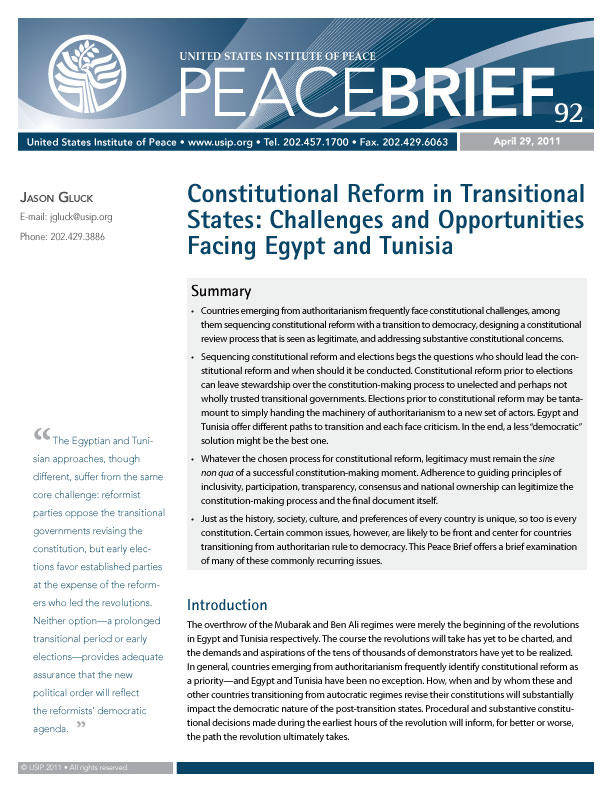Countries emerging from authoritarianism frequently face constitutional challenges, among them sequencing constitutional reform with a transition to democracy, designing a constitutional review process that is seen as legitimate, and addressing substantive constitutional concerns.

Summary
- Countries emerging from authoritarianism frequently face constitutional challenges, among them sequencing constitutional reform with a transition to democracy, designing a constitutional review process that is seen as legitimate, and addressing substantive constitutional concerns.
- Sequencing constitutional reform and elections begs the questions who should lead the constitutional reform and when should it be conducted. Constitutional reform prior to elections can leave stewardship over the constitution-making process to unelected and perhaps not wholly trusted transitional governments. Elections prior to constitutional reform may be tantamount to simply handing the machinery of authoritarianism to a new set of actors. Egypt and Tunisia offer different paths to transition and each face criticism. In the end, a less “democratic” solution might be the best one.
- Whatever the chosen process for constitutional reform, legitimacy must remain the sine non qua of a successful constitution-making moment. Adherence to guiding principles of inclusivity, participation, transparency, consensus and national ownership can legitimize the constitution-making process and the final document itself.
- Just as the history, society, culture, and preferences of every country is unique, so too is every constitution. Certain common issues, however, are likely to be front and center for countries transitioning from authoritarian rule to democracy. This Peace Brief offers a brief examination of many of these commonly recurring issues.
About this Brief
This Peace Brief, written in April 2011, examines some of the challenges to constitutional reform in transitional states and offers mechanisms for increasing the legitimacy and democratizing effect of constitutional reform. The views expressed in it do not necessarily reflect the views of the United States Institute of Peace, which does not advocate specific policy positions. Excerpts of this brief are also published in “Traveling toward the Rule of Law in the Middle East and North Africa: Avenues and Obstacles.”